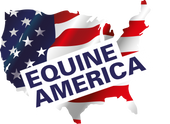Understanding Fillers and Sugars in Supplements

We see a lot of posts about how fillers are bad… sugars are bad… lets take a closer look at the real, scientifically-supported facts about the ingredients in a supplement!
Fillers, or as we like to call them base materials. These are the ingredients in a supplement that help ensure the active ingredients are palatable – you can have all the actives in the world, but it’s no good if the horse won’t eat them!
They also ensure that the active ingredients are part of a homogeneous mix to make sure you get the same amount in every serve, this is particularly important in some of the ingredients with smaller inclusion rates such as vitamins that may be measured in micrograms (mcg), not even milligrams (mg) or grams (g), which would be very difficult to measure in a scoop to feed if we didn’t add anything! The base materials we choose are, where possible, functional - adding extra value to the supplement. A good example is linseed, which provides those all-important omega 3 fatty acids to support health and wellbeing. Another example is alfalfa, again a common horse feedstuff, which is an important source of calcium. So ‘fillers’ (base materials) aren’t always a ‘bad’ thing!
Sometimes we use dextrose (glucose) as a base material, and again this small amount of sugar isn’t automatically bad for all horses and ponies. Indeed it’s important to remember that the horse’s brain needs a regular supply of glucose to function properly, so horses have evolved to need some sugar in their diet – usually provided through grazing, where Summer grass might contain 10-20% sugar on a dry matter basis. So even severely limited grazing will provide some sugar. We appreciate many of you have horses on restricted diets, where you are carefully controlling their sugar intake due to insulin dysregulation and EMS but let’s put this into perspective. Cortaflex Regular Powder contains just 0.7g sugar per 14g daily serve, and even Cortaflex Super Fenn, designed for harder working horses and ponies, only contains 9.2g per 15g serve. Keep reading to see how this compares to soaked hay for those of you who have to manage sugar intakes!
Pro Pell Plus, globally one of the most widely used tonics to help support energy production– can be safe for a horse or pony with EMS as part of a balanced diet. Pro-Pell does not contain any added fructose, sucrose, or dextrose/glucose. Instead we use sorbitol, (a natural sweetener found in some plants), which isn’t really digested in the small intestine, and does not trigger and insulin response in the same way as glucose or dextrose, sucrose or fructose, but rather it is fermented in the large intestine, and it is worth mentioning that the quantities we include (1.5g per 30 ml serve) are not large enough to have a significant impact on gut microbiome or pH, which is also important for a pony prone to laminitis. The key point is that is does not trigger a significant insulin response so is considered safer for those horses and ponies with insulin dysregulation. Pro-Pell also includes honey, which provides a number of well-known health benefits for horses and ponies requiring a blood tonic. Honey is typically around 80% sugar (typically glucose and fructose) but before you panic, it is only included at 9%, which when calculated out provides just under 2.2g sugar from honey in a 30ml serve. To put this tiny amount of sugar per serve into perspective, 1 kg of soaked hay will typically provide between 20 and 30g residual water-soluble carbohydrates (WSC) or “sugar” after soaking. So 3 kg of soaked hay will provide 60-90g sugar, compared with this 2.2g from Pro Pell.
The take home message is the serve rate/amount consumed matters when it comes to sugars, don’t just fixate on a percentage! Any supplement should be fed as part of a balanced diet, and if in doubt please speak to a qualified nutritionist to help formulate a diet.
Equine America pride ourselves in our transparency with ingredients, we have nothing to hide and good nutrition shouldn’t be a secret! We will always tell you what is in our supplements, not just the statutory declarations – all our ingredients are listed on the website and labels so please have a look! Our team of helpful and friendly nutritionists and equine Vets are more than happy to discuss the reasoning behind any inclusions with interested customers so please just ask!

